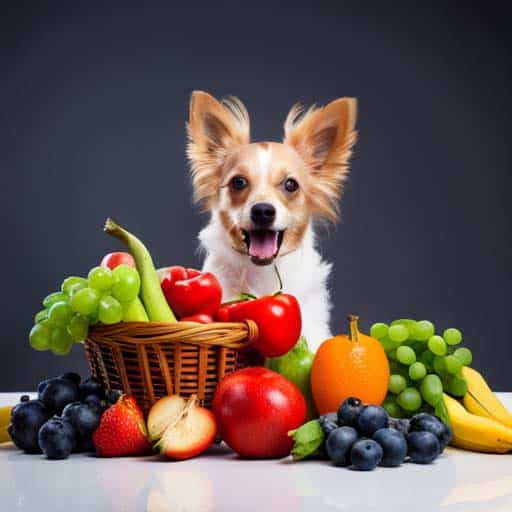They can, but they probably shouldn’t. Pretzels, while not toxic to dogs, contain high sodium and carbohydrate content that can pose potential health risks to your furry friend.
Pretzels may not cause immediate harm, but frequently indulging your dog in these snacks could lead to health issues. It’s essential to consider healthier and more nutritious alternative treats and consult your veterinarian when in doubt.
Key Takeaways
Can Dogs Eat Pretzels?
The Basic Answer
Similarly to potato chips, while dogs can technically consume pretzels without immediate harm, feeding them this snack regularly is not recommended. Most pretzels contain high levels of salt and carbohydrates that are unsuitable for a dog’s diet, offering them little to no nutritional value.
Potential Risks
There are several potential risks associated with feeding pretzels to dogs, which include:
In conclusion, due to the potential risks and lack of nutritional value, it’s best to avoid feeding pretzels to dogs. Opt for healthier dog-friendly treats that provide essential nutrients and help keep your pet happy and healthy.
What Makes Pretzels Harmful for Dogs?
High Sodium Content
Pretzels are a popular snack for humans, but they can be harmful to dogs due to their high sodium content. Excessive sodium intake can lead to health issues such as excessive thirst, urination, and dehydration. Furthermore, consuming large amounts of pretzels may result in salt poisoning, which can cause more severe complications like heart disease or kidney failure in dogs.
Managing your dog’s sodium intake is essential, as high levels can lead to the aforementioned health problems. As a reference, a typical pretzel stick contains approximately 50 milligrams of sodium, while the daily recommended sodium intake for dogs is about 100 milligrams. This means just a few pretzel sticks will exceed what is considered safe for your pet.
Yeast in Pretzels
Another concern for feeding pretzels to dogs is the presence of yeast. Some pretzel recipes may include yeast, which can pose a risk for dogs if consumed. Yeast consumption can cause gastrointestinal issues, as it can ferment and produce gas in your dog’s stomach, leading to bloating and discomfort.
In severe cases, yeast can cause a condition known as bloat or gastric torsion, which is a medical emergency and requires immediate veterinary attention. Bloat can cause the stomach to twist or flip on itself, cutting off blood flow, and may lead to tissue death and shock.
In summary, due to their high sodium content and potential yeast content, it is best to avoid feeding pretzels to your dogs. Instead, opt for dog-friendly treats to keep them healthy and happy.
Possible Health Effects on Dogs
Feeding your dog pretzels could lead to a number of health issues. One major concern is the high sodium content found in pretzels.
According to Dr. Schechter, excessive sodium intake can cause dehydration, excessive thirst, and frequent urination in dogs. Furthermore, high levels of sodium may contribute to the development of heart disease or kidney failure in dogs.
In addition to their high sodium content, pretzels are also rich in carbohydrates.

A dog’s digestive system is not well-suited to process large amounts of carbohydrates, which may lead to digestive problems, such as upset stomachs, as mentioned on Masterclass.
Moreover, pretzels’ high salt and sugar content can cause a dog’s blood sugar levels to spike, resulting in symptoms like lethargy and increased thirst, as stated by PuppySimply. These symptoms may indicate an imbalance in a dog’s blood sugar levels, which is not ideal for their overall health.
While pretzels themselves may not be toxic to dogs, certain varieties of pretzels can pose additional risks. For example, pretzels covered in yogurt or peanut butter are not recommended for dogs due to the increased sodium content and potentially harmful additives, as pointed out by Spoiled Hounds.
In summary, pretzels can potentially cause a range of health problems in dogs, primarily due to their high sodium and carbohydrate content. It is advisable to avoid feeding your dog pretzels, opting instead for healthier dog-friendly snacks.
Safe Alternatives for Dog Treats
Pet owners love to spoil their dogs with treats, but pretzels are not the best option due to their high salt content and potential choking hazards. Instead, consider these safe and healthy alternatives to keep your furry friend happy and satisfied.
Fresh fruits and vegetables can be a great treat for dogs.
Options like carrots, green beans, cucumbers, and watermelon (without seeds) are healthy, low-calorie snacks that many dogs enjoy.
Just chop these fruits and veggies up and your dog can easily enjoy the,.
Be cautious of fruits with pits or seeds, as they can pose a choking hazard or contain toxic substances.

Lean meats such as chicken, turkey, or beef are excellent protein sources that most dogs love.
Always opt for cooked and unseasoned meat, as raw meat can contain harmful bacteria, and seasonings like garlic or onion powder can increase the risk of toxicity.
Chop the meat up into small chunks to help the dog eat the treat and digest it.

Another option is dog-safe commercial treats specifically formulated for canine nutrition. Look for products with minimal additives, artificial colors, or preservatives to ensure your dog receives the most wholesome treats possible. Always choose treats appropriate for your dog’s size and dietary needs.
When sharing human food with your dog, it’s crucial to remember that not everything we eat is safe for them. Make sure to research and consult with your veterinarian before introducing any new foods into your dog’s diet. By doing so, you can ensure your furry friend stays happy, healthy, and well-nourished.
When to Consult a Veterinarian
If you are unsure about feeding your dog pretzels, it is always a good idea to consult a veterinarian for advice. They will be able to provide guidance on whether pretzels are safe for your dog or not. In some cases, a dog may be able to consume small amounts of pretzels safely, but this may vary depending on the dog’s size, age, and activity level (Vet Ranch).
It is essential to watch for signs of salt poisoning in your dog, especially if they have accidentally consumed a large amount of pretzels. Symptoms of salt poisoning in dogs include diarrhea, vomiting, excessive thirst or urination, lack of appetite, and difficulty walking (Pethority Dogs).
Contact your veterinarian immediately if your dog exhibits any of these symptoms after eating pretzels.
Your veterinarian can also help you determine your dog’s appropriate calorie intake and guide you on healthy snack options. It is crucial to ensure that treats, including pretzels, do not exceed 10% of your dog’s daily caloric intake (Vet Ranch).
Keep in mind that plenty of dog-friendly treats are available on the market specifically designed for your pet’s nutritional needs. It is always better to seek out treats specifically formulated for dogs rather than risking potential health issues by sharing human snacks.
Conclusion and final thoughts 💭
Dogs can eat pretzels but only a few. They are not a good snack to give to your dog in any kind of quantity more than that, or on a regular basis.
Basically, any salty snack, including popcorn and potato chips should be avoided by dogs.
Frequently Asked Questions
Are pretzels safe for dogs?
While dogs can technically eat pretzels, they really shouldn’t. Pretzels provide little to no nutritional value to dogs and can cause potential health issues due to their high salt content and other ingredients.
What are the risks of dogs eating pretzels?
The main risk associated with dogs eating pretzels is the high salt content, which can lead to dehydration and even sodium ion poisoning in dogs.
Additionally, pretzels’ carbohydrate content is unsuitable for a dog’s diet and may cause digestive issues.
Can dogs eat unsalted pretzels?
While unsalted pretzels might seem like a safer option, they still have little to no nutritional value for dogs and may contain other ingredients that could be harmful. It’s best to avoid giving pretzels to dogs altogether.
Is it okay for dogs to have peanut butter-filled pretzels?
Though peanut butter itself is safe for dogs, peanut butter-filled pretzels are not recommended. The pretzel portion still carries the risks associated with salt content, carbohydrates, and other potentially harmful ingredients.
How can pretzel ingredients impact a dog’s health?
Pretzel ingredients like salt and carbohydrates can negatively impact a dog’s health. High salt intake may cause dehydration and sodium ion poisoning, while excessive carbohydrates can disrupt a dog’s natural diet.
What are healthy snack alternatives to pretzels for dogs?
Instead of pretzels, consider offering your dog healthier snack alternatives that are specifically designed for canine consumption. Examples include dog treats made with natural ingredients, such as vegetables, fruits, and lean meats.
Additionally, providing raw vegetables like carrots and fresh fruits like watermelon (without seeds) can be a nutritious and safe option for your furry friend





Leave a Reply